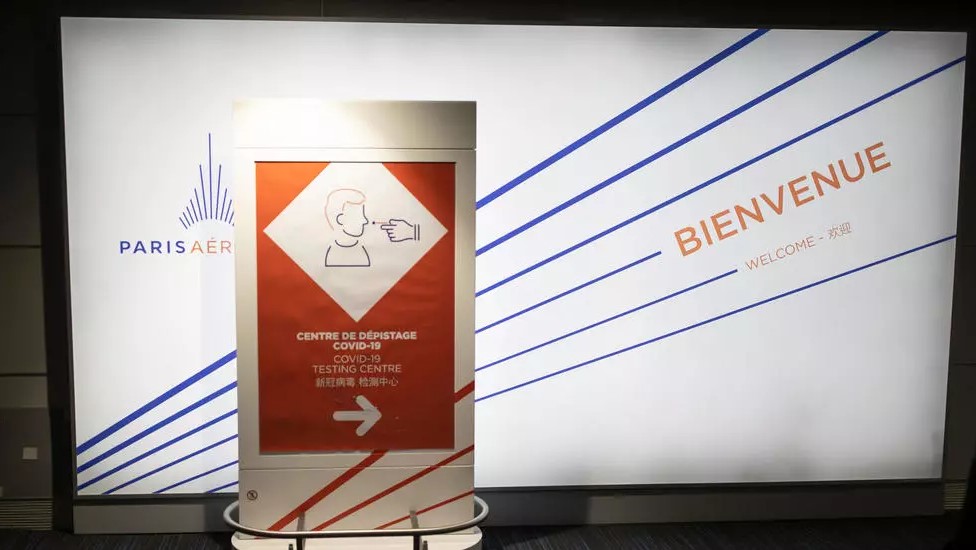France unveiled Friday a colour-coded map laying out eased entry protocols for the summer travel season, with restrictions lifted for EU residents while visitors from Britain and the US will need a negative Covid test even if vaccinated.
Starting June 9, EU residents will no longer need a compelling reason to come to France, usually the world's top tourist destination, and only non-vaccinated visitors will have to provide a recent negative antigen or PCR test.
The eased rules also apply to seven countries deemed "green" -- Australia, South Korea, Israel, Japan, Lebanon, New Zealand and Singapore.
The plan to start lifting border controls could be a boon for France's crucial tourism industry as the country emerges from its third coronavirus lockdown.
-We have to reconcile freedom of mobility with the need for security- Tourism Minister Jean-Baptiste Lemoyne said on BFM television.
-Nothing would be worse than to enter yet another Covid wave because we were not careful enough- he said.
The news will be a relief to the tourism sector, which worried that coronavirus tests that are free in France but can cost 100 euros ($120) or more in some countries would deter foreign visitors.
From July 1, France will also recognise a European "health pass" proving inoculation against the coronavirus that authorises travel within the bloc, according to updated guidelines published by the government Friday.
Last month, France announced a 10-million-euro investment in a campaign to woo European visitors this summer.
But travel to and from much of the rest of the world where the virus is still actively circulating will remain subject to stricter controls.
In "orange" zones including Britain, North America and most of Asia and Africa, even vaccinated travellers to France will still have to produce a recent negative Covid test, but they will no longer have to prove compelling reasons to visit.
For non-vaccinated people coming from orange zones, however, only essential trips such as medical or family emergencies will be allowed, the government said, and a seven-day self-quarantine will be imposed.
Asked why tests will be required even from vaccinated American visitors, Transport Minister Jean-Baptiste Djebbari said the problem was a lack of standardised digital proof.
-They have vaccinated lots of people but they haven't digitised it -- when you get vaccinated you often just get a sheet of paper- Djebbari told CNews television.
-We're negotiating with them, and the goal is still to open up for North America, Canada and the United States, and parts of Africa- he said, adding that he hoped to have results in the coming weeks.
Sixteen countries will remain largely off-limits because of a worrying surge in coronavirus variants that are more contagious or serious and could prove less responsive to the four vaccines authorised in Europe.
They include India, Turkey, South Africa and much of South America, including Brazil.
Travellers from these countries will need to provide negative Covid-19 tests whether vaccinated or not, and will have to quarantine for seven to 10 days on arrival.
France's tourism market generated 57 billion euros ($69 billion) in 2019, accounting for 7.5 percent of the country's gross domestic product and nearly 2.9 million jobs.
The Covid crisis cut the sector's earnings in half last year, and industry officials also worry about growing competition from hot destinations such as Greece, Spain and Italy.
The nationwide curfew in effect for France will be pushed back to 11 pm on June 9, when restaurants will again be allowed to seat diners indoors, and fully lifted on June 30.
